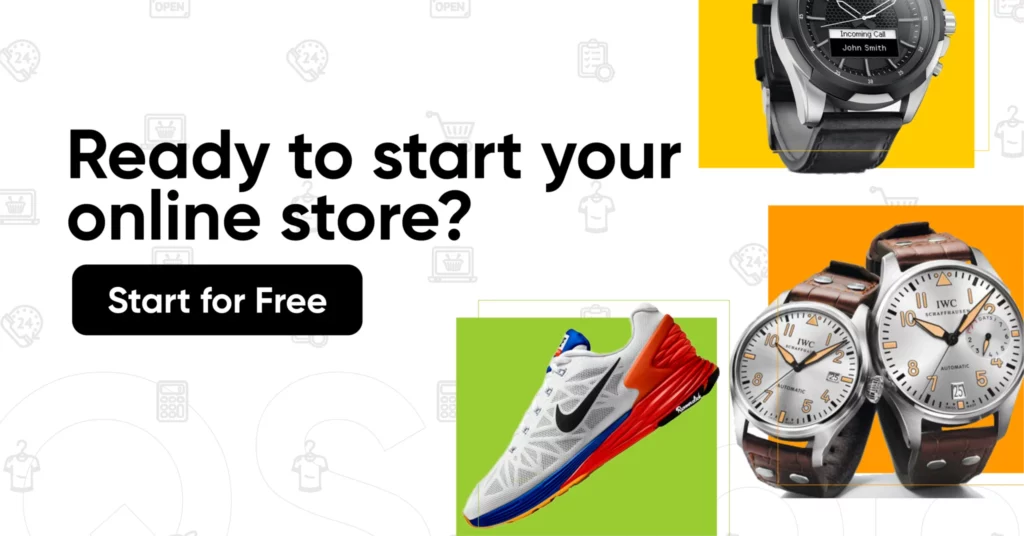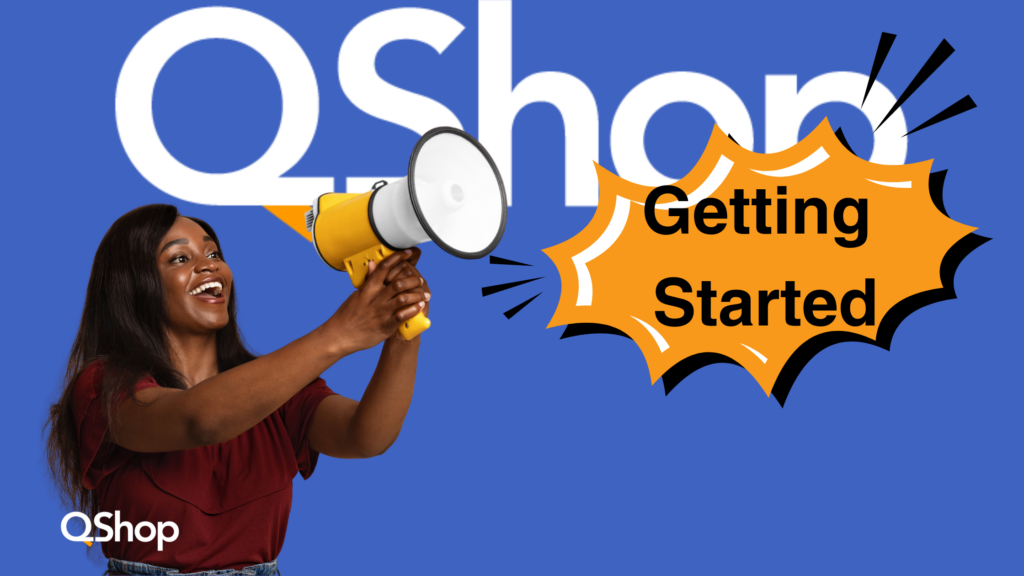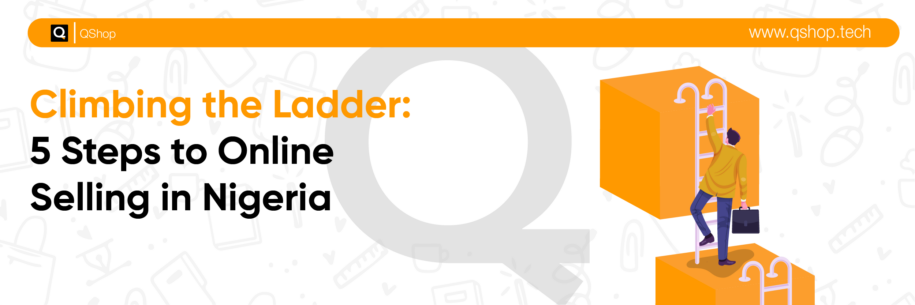If there’s one thing Nigerians are known for, it’s our relentless hustle spirit. Whether it’s Mama Ayo selling puff-puff on your street or the tech bros coding till midnight, we’re always finding ways to make extra cash. And in today’s digital age, where the hustle has gone online—“Selling Online” is the new oil money that most people haven’t discovered yet.
Think about it: instead of waiting for customers to walk into your shop, you can sell to someone in Sokoto while chilling in your shop here in Lagos. Whether it’s clothes, wigs, skin care products, or even your handmade jewellery, the internet gives you access to buyers from every corner of Naija, and guess what? No shop rent. No “area boys” harassing you for egunje. Just your phone, data, and your hustle spirit.
For my 9-to-5 warriors, selling online can be your perfect side hustle. Imagine earning extra cash while still keeping your day job—something you can run during your lunch break or in the evenings while stuck in Lagos traffic (because let’s be real, we all know how that goes).
This guide is here to show you practical steps to start selling online in Nigeria today. No long talk, no unnecessary jargon. Just real, actionable tips to help you tap into this lucrative trend. Whether you’re starting small or dreaming big, I’ve got you covered. Let’s get this online money!

Step 1: Identify Your Niche and Products

The first step to selling online is deciding what to sell—and trust me, this is where the magic begins. If you’re thinking, “Anything I sell will move,” hold up hold up, we don’t do that here. In the Nigerian market, not everything sells well online, and jumping into a business without proper research can lead to stories that touch, you differently and don’t want that. So let’s get it right from the start.
Research Market Demand
First things first: you need to find out what Nigerians are actively buying. The goal is to discover a product or service that solves a problem, meets a need, or taps into a trend. Think about the things you often see people asking for in WhatsApp groups or Facebook communities. From cultural trends to everyday essentials, Nigeria’s market is ripe with opportunities.
Here are some popular niches that have been proven to work:
- African Print Fashion: Nigerians love to slay, whether for weddings, owambe, or casual outings. Selling stylish Ankara pieces, accessories, or ready-made outfits can be a hit.
- Natural Skincare Products: With the rise of self-care culture, products like organic black soap, shea butter, and essential oils are hot in the e-commerce Nigeria space.
- Food Delivery Services: From homemade soups to snacks like chin chin or puff-puff, people are always looking for quick and tasty options.
- Fitness and Health Products: From waist trainers to detox teas, Nigerians are increasingly health-conscious.
- Phone Accessories: With almost everyone owning a smartphone, things like chargers, earphones, and phone cases are always in demand.
Want more product ideas? Check out our latest post on the best product to sell online here
Pro Tips for Researching a Niche
- Google Trends: Google Trends is a free online tool that shows you how popular a search term is over time. For instance, if you want to sell detox teas, search for ‘detox teas in Nigeria’ to see if interest is growing or declining.
- Social Media: Browse Instagram hashtags like #MadeinNigeria or TikTok trends to see what’s hot.
- Online Communities: Platforms like Nairaland or Nigerian Facebook groups can give you insights into what people are talking about and looking to buy. The key here is to find products with high demand and low competition. If you enter a crowded market, be sure you have a unique twist to stand out.
Evaluate the Competition
Nobody wants to be the “me too” seller, offering the same thing as everyone else. Once you have an idea of what to sell, it’s time to study your competition. Look at how other sellers in your niche operate and ask yourself:
- What are they doing well?
- What are their customers complaining about in reviews or comments?
- Are there gaps you can fill, like faster delivery or better customer service?
For example, if you’re entering the African print fashion niche and notice most sellers don’t offer custom sizing, you can step in and offer that. Or if skincare brands in your area don’t educate customers about product benefits, you can provide tutorials or Instagram live sessions to build trust.
While chasing market demand is important, don’t forget your passion and expertise. Selling something you genuinely love makes the work feel less like stress and more like fun. If you’re a natural hair enthusiast, for example, selling natural skincare or haircare products will come easily because you already know what works.
When you combine passion, market demand, and creativity, you’re not just starting an online business in Nigeria—you’re creating a brand people will trust and keep coming back to.
By identifying the right niche and product, you’ve laid a solid foundation for selling online in Nigeria. Ready for Step 2? Let’s keep moving!
Step 2: Choose the Right Online Store Platform

Now that you’ve figured out what to sell, the next step is choosing where to sell it. You need to understand that not all e-commerce platforms are created equal—especially when it comes to selling online in Nigeria. Here, we deal with unique challenges, from network wahala to payment issues, so you need a platform that’s tailored for us. Picking the right one can be the difference between “business dey move” and “abeg, where are my customers?
Select an Online Store Platform Tailored to Nigerians
Here are a few things to look out for when selecting a platform:
- Mobile Responsiveness: Since most Nigerians shop using their smartphones, your online store must look sharp and work smoothly on mobile.
- Local Payment Integration: Platforms that work with local payment methods like bank transfer, C.O.D(cash on delivery) Paystack or Flutterwave are a must. Nigerians want to pay without stress.
- Ease of Use: You and your customers don’t need to be a tech guru to set up a great online store or shop from the store.
- Affordability: Many platforms charge fees, but look for ones that won’t eat into your profit too much.
If you’re serious about selling online in Nigeria, QShop is an excellent choice. Designed specifically for African entrepreneurs, it ticks all the boxes. Setting up your store on QShop is as easy as creating an Instagram account—no coding required. It integrates seamlessly with local payment options, supports mobile shopping, and is super affordable. Plus, you can customize your store to reflect your brand’s vibe.
With QShop, you don’t have to worry about the headaches of managing your store—just focus on selling online and growing your online business in Nigeria.
Consider Local Marketplaces
While having your own online store gives you control, putting your products on marketplaces like Jumia, jiji or Konga can help you reach more customers quickly. These platforms are popular in Nigeria and already attract millions of buyers. Think of it as putting your goods in a busy market where customers are already shopping. Here’s how it works
- Sign Up: Create a seller account on platforms like Jumia, jiji or Konga.
- List Your Products: Upload high-quality pictures, write catchy descriptions, and set competitive prices.
- Leverage Their Traffic: These platforms do heavy marketing, so your products can reach a broader audience.
The downside? They charge commissions on sales and have stricter policies. That’s why a hybrid approach—having your own store on QShop and also listing on marketplaces—can give you the best of both worlds. By choosing the right platform, you’re setting yourself up for a smooth ride into the world of selling online. Now let’s talk about how to set up each platform.
Step 3: Create your Online Store and start selling online

Now that you’ve chosen your e-commerce platform, it’s time to set up your store. Don’t worry, even if you’re not tech-savvy, I’ve got you covered. Setting up an online store is much easier than you think—whether you’re using QShop, Jumia, Jiji, or Konga. With a little effort and the right steps, you’ll be selling online in Nigeria like a pro in no time!
1. Set up your account
Start by signing up on your chosen platform. Whether it’s QShop or a marketplace like Jumia, most platforms make this step quick and simple, It’s as easy as creating a social media account.
QShop: Create your online store on QShop with these easy steps.
- Step 1: Visit QShop.tech and click “ Start for free”

- Step 2: Enter your email address and click “Register”.

- Step 3: Verify your email address and click “Submit”

- Step 4: Enter your primary details and click “Next”

- Step 5: Enter your online store details and click “ Sign up”.

Congrats you have successfully created your online store. You can either check out your dashboard or use the setup guide to finish setting up your store.

Marketplace Platforms
- Jiji: Visit https://jiji.ng/seller.html and click “Post ad” to set up a seller account.

- Jumia: Visit https://vendorcenter.jumia.com/sign-in and click “Sell on Jumia” to set up a Jumia vendor account.

- Konga: Visit https://shq.konga.com/ and click on “Start selling on Konga” to set up a seller account on Konga.

Once you’ve got an online store, the next step is adding your product; you need quality product pictures to add your product.
2. Upload Quality Product Photos
When it comes to selling online, first impressions matter. Nigerians love to “see as e be,” so invest in clean, clear, and attractive pictures of your products. You don’t need a fancy camera; your smartphone will do. Just ensure:
- Good Lighting: Natural light works wonders.
- Neat Background: A white or plain-coloured background makes your products pop.
- Multiple Angles: Show the front, back, and sides of your product.
For example, if you’re selling Ankara dresses, take photos of the full outfit, close-ups of the fabric, and even someone modelling it. A clear picture can be the difference between “Let me think about it” and “Send your account details.”
3. Write Catchy Product Descriptions
This is where you sell the dream. Your product description should do more than just state the obvious—it should make people imagine using the product. Instead of writing:
- “African print dress available in sizes 8-14”
Try something like: - “Slay any occasion with this bold and vibrant African print dress! Perfect for weddings, date nights, or casual outings. Available in sizes 8-14.”
Focus on:
- Benefits over Features: Tell them what the product can do for them.
4. Set Competitive Prices
Pricing is key when selling online in Nigeria. Nigerians love a good deal, so research the average price of your product on platforms like Jiji, Jumia, or even in local markets. Set a price that’s competitive but still allows you to make a profit.
Pro Tip:
- Offer introductory discounts or bundle deals to attract first-time buyers. For instance, “Buy 2 jars of shea butter and get free delivery!”
- Factor in costs like delivery fees, payment gateway charges, and packaging before finalizing your price.
5. Optimize Your Online Store
On platforms like QShop, you can easily organize your store into categories like “New Arrivals,” “Best Sellers,” or “Discount Deals.” This makes it easier for customers to find what they’re looking for.
On marketplaces like Jumia or Konga, make sure your products are listed under the right categories. For example, if you’re selling phone accessories, listing them under “Home Appliances” is a big no-no.
How QShop Makes It Easy
If you’re using QShop, the setup process is even simpler.
- Customizable Templates: Create a beautiful, professional-looking store without any design skills.
- Easy Payment Integration: Link your store to local payment gateways like Paystack or Flutterwave with just a few clicks.
- Support for Social Selling: QShop lets you integrate with platforms like Instagram and WhatsApp, so you can drive traffic directly from your social media accounts.
Building your online store is like setting up your shop in Balogun or Wuse Market—presentation matters. High-quality photos, persuasive descriptions, and the right pricing will make your store stand out. Once everything is in place, you’re not just starting an online business; you’re building something customers will love and trust. Ready for Step 4? Let’s talk about getting the word out and driving traffic to your store!
Step 4: Develop a Marketing Strategy

You’ve set up your online store—congrats! But let’s be real, just having a store isn’t enough. In Nigeria, if people don’t know about your business, na only you go dey buy your products. Marketing is the lifeblood of selling online. And in Nigeria, it’s all about knowing where your customers are hanging out and how to grab their attention. Let’s break it down.
1. Leverage Social Media platforms
Nigerians are active on social media, so platforms like Instagram, WhatsApp, and TikTok should be your go-to for reaching potential customers.
Instagram is perfect for showcasing your products with eye-catching visuals.
- Post Consistently: Share photos, reels, and stories that highlight your products and how they solve customer problems.
- Use Hashtags: Tag your posts with trending hashtags, like # MadeInNigeria and #AffordableFashionNaija, to reach more people.
- Engage Your Audience: Reply to comments and DMs quickly. Nigerians love businesses that respond fast—it builds trust!
WhatsApp is another powerful tool for selling online in Nigeria.
- Create a Business Account: Add a catalogue of your products, so customers can browse directly in your profile.
- Broadcast Lists: Broadcast lists on WhatsApp let you send the same message to multiple people without putting them in a group. It’s perfect for promoting new products or sales to your customer base.” (but don’t spam them o!).
- Use WhatsApp Status: Post daily updates about your products, customer testimonials, or behind-the-scenes snippets to stay top of mind.
TikTok
If your target audience is Gen Z or young millennials, TikTok is the plug!
- Show Personality: Post fun and relatable videos that highlight your product in action.
- Hop on Trends: Join viral challenges or use trending sounds to make your content discoverable.
2. Tell Stories That Resonate
In Nigeria, we love a good story—everybody wants to know how Mama Nkechi started her chin chin business or how a student-funded their education by selling Ankara bags online. Use storytelling to connect with your audience on an emotional level.
For example:
- If you’re selling skincare, share how your products helped a customer regain their confidence.
- If you’re into food delivery, post stories of how your quick meals save busy professionals during lunch hours.
People don’t just buy products; they buy the stories behind them. This is your chance to make your brand memorable.
3. Run Giveaways and Collaborate with Influencers
- Giveaways: Nigerians love awoof! Organize contests like “Tag 3 friends to win” or “Answer this question to get a free item.” It’s a cost-effective way to boost engagement and grow your audience.
- Influencer Collaborations: You don’t need a big celebrity—micro-influencers with a loyal following can make a huge impact. For example, a lifestyle vlogger on TikTok or a food blogger on Instagram can showcase your product to their followers, creating buzz and trust.
4. Maximize Word-of-Mouth Marketing
In Nigeria, word-of-mouth is the ogbonge strategy for building trust. Nigerians believe more in what others say than what you advertise. Encourage your customers to talk about you by:
- Delivering exceptional service that makes them want to recommend you.
- Offering referral bonuses or discounts for bringing in new customers.
- Actively requesting reviews and testimonials to post on your social media or store.
For example, if someone says your homemade chin chin was the best they’ve ever tasted, share that review with pride! Seeing real people enjoy your product will encourage others to buy.
5. Build Trust Through Reviews and Testimonials
Trust is everything when selling online in Nigeria. Nobody wants to fall victim to another “Instagram vendor scam.” Build credibility by sharing:
- Customer Reviews: Showcase what people are saying about your products. A simple “This shea butter made my skin glow!” can go a long way.
- Testimonials with Photos or Videos: Nigerians trust what they see. If a customer sends you a glowing review, ask for their permission to share it.
By crafting a solid marketing strategy, you’re not just starting an online business in Nigeria—you’re building a lucrative source of income that runs without your presence. Ready for Step 5? Let’s talk about delivering exceptional service and building loyal customers!
Step 5: Establish Logistics and Customer Service

Congratulations—you’re almost there! You’ve chosen a niche, set up your store, and created a killer marketing strategy. Now, let’s talk about something just as important: logistics and customer service. Here’s the thing: a smooth delivery process and great customer service aren’t just “nice to haves.” They’re the backbone of your online business. Imagine your first customer gets their order on time, neatly packed, with a thank-you note. Not only will they come back for more, but they’ll tell their friends too. That’s how word-of-mouth marketing starts. And believe me, how you deliver products and handle your customers can either make you the plug everyone trusts—or the vendor they avoid like Monday morning traffic.
1. Build Reliable Logistics Systems
Delivering products in Nigeria comes with its unique challenges (hello, Lagos traffic! And fuel scarcity,), but having a solid logistics plan makes all the difference. Customers want their orders fast and in perfect condition, so choosing the right courier service is key.
Recommended Courier Services:
- GIG Logistics: Known for its nationwide reach and reliable service.
- Kwik: Perfect for same-day delivery, especially in Lagos.
- DHL: Best for international shipping or premium local deliveries.
One of the perks of using QShop is that it has integrated these delivery services right into the platform. You can manage shipping seamlessly without running around to find a courier. Just set your delivery preferences on QShop, and your customers can choose from trusted logistics partners. This saves you the stress of manually organizing deliveries and gives your buyers peace of mind.
2. Negotiate Favourable Delivery Rates
Shipping fees can be a dealbreaker for customers, so it’s smart to negotiate with courier companies for better rates, especially if you’re doing high volumes. Here’s how:
- Build Relationships: If you consistently use one courier service, ask for discounts or loyalty perks.
- Leverage Partnerships: If you’re using QShop, we already offer discounted delivery rates because of the existing agreements with logistics companies.
3. Handle Customer’s Challenges Like a Pro
Nobody likes delays, but in Nigeria, things like traffic, fuel scarcity, or “out of stock” issues can happen. Here’s how to stay on top:
- Communicate Early: If delivery is delayed, let your customer know ASAP. A simple WhatsApp message like, “Hi, there’s a slight delay due to traffic, but your order will arrive by 5 PM,” goes a long way.
- Stock Management: Avoid overselling by updating your inventory regularly. By the using automated inventory feature on QShop it can help you track your stock so you’re never caught off guard by sending you both email and WhatsApp notifications when stock is running low.
- Offer Alternatives: If an item is out of stock, suggest similar products instead of leaving the customer hanging.
4. Prioritize Excellent Customer Service
Good customer service is what makes buyers come back—and spread the word about your business. Nigerians value respect and responsiveness, so take these tips seriously:
- Be Available: Respond quickly to inquiries on WhatsApp or live chat. Customers appreciate vendors who don’t “ghost” them after payment.
- Be Polite: No matter how demanding a customer gets, keep it professional. Think of it as customer service juju—it works wonders!
QShop makes customer service even easier by integrating a WhatsApp live chat option. This allows customers to ask questions, track orders, or resolve issues directly with you—all in real-time. It builds trust and makes the buying experience smooth, which is vital for growing your online business in Nigeria.
By prioritizing logistics and customer service, you’re not just starting an online business in Nigeria; you’re setting the standard for excellence. Now, you’re ready to go out there and win! Happy selling!
Getting Started with Selling Online in Nigeria

Congratulations! You now have the blueprint to start selling online in Nigeria and turning your dreams into reality. But here’s the truth: it’s not just about having the right tools—it’s about showing up consistently and putting your passion to work. Rome wasn’t built in a day, and neither are successful online businesses. Start small, stay focused, and remember that every big brand you admire today started somewhere.
Think about it: Dangote didn’t become Africa’s richest man overnight. Jumia wasn’t always a household name. They all started by taking that first step, and now it’s your turn to take yours. If you’re wondering where to begin, QShop is your perfect partner. It’s built for African entrepreneurs like you—affordable, easy to use, and packed with features that simplify selling online in Nigeria. With QShop, you’re not just starting a business; you’re joining a community of hustlers who are rewriting the rules of commerce. The first step is always the hardest, but with the right platform and your unstoppable spirit, you’re already halfway there. Go ahead—let’s make your dreams come alive!



Leave a Reply
You must be logged in to post a comment.